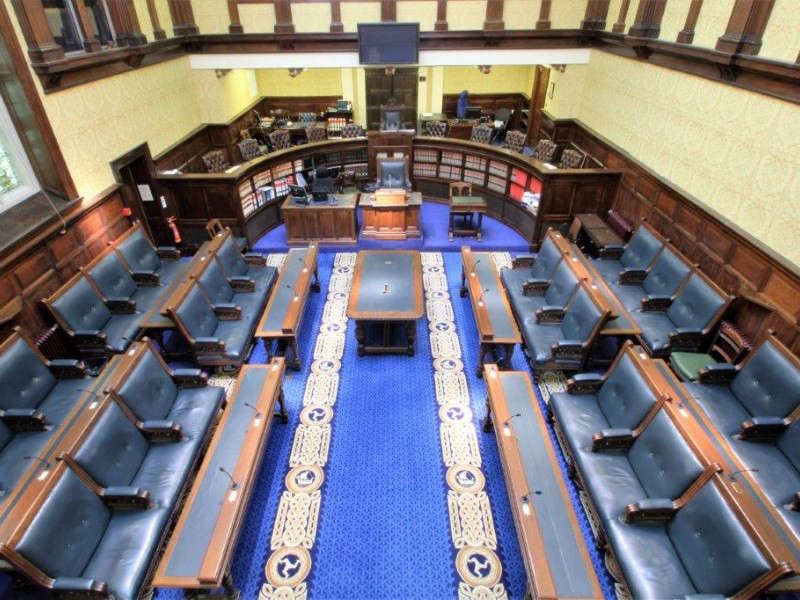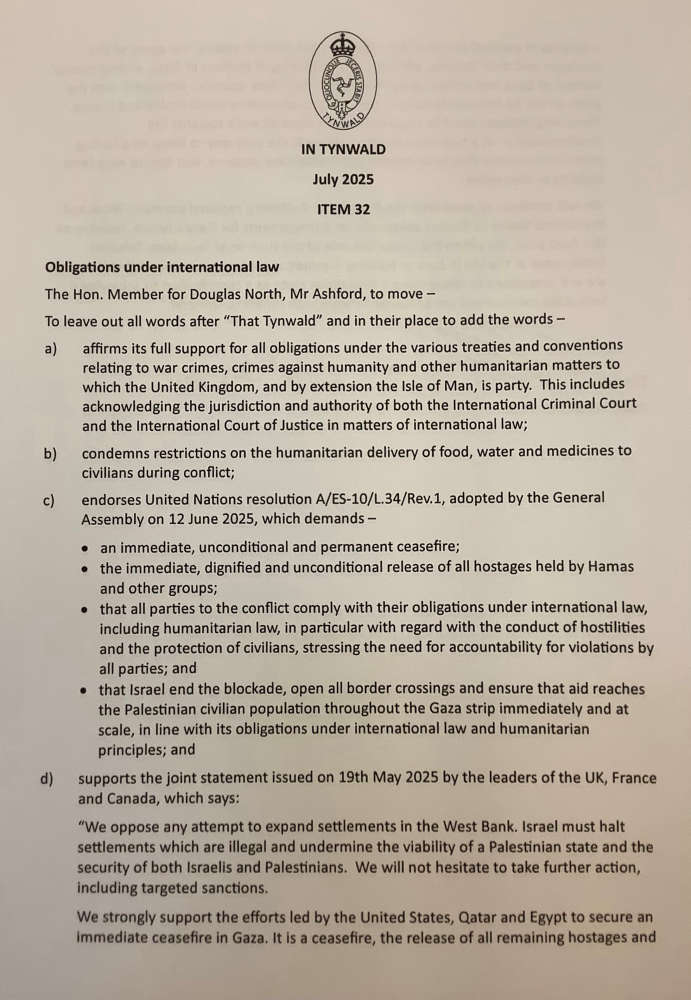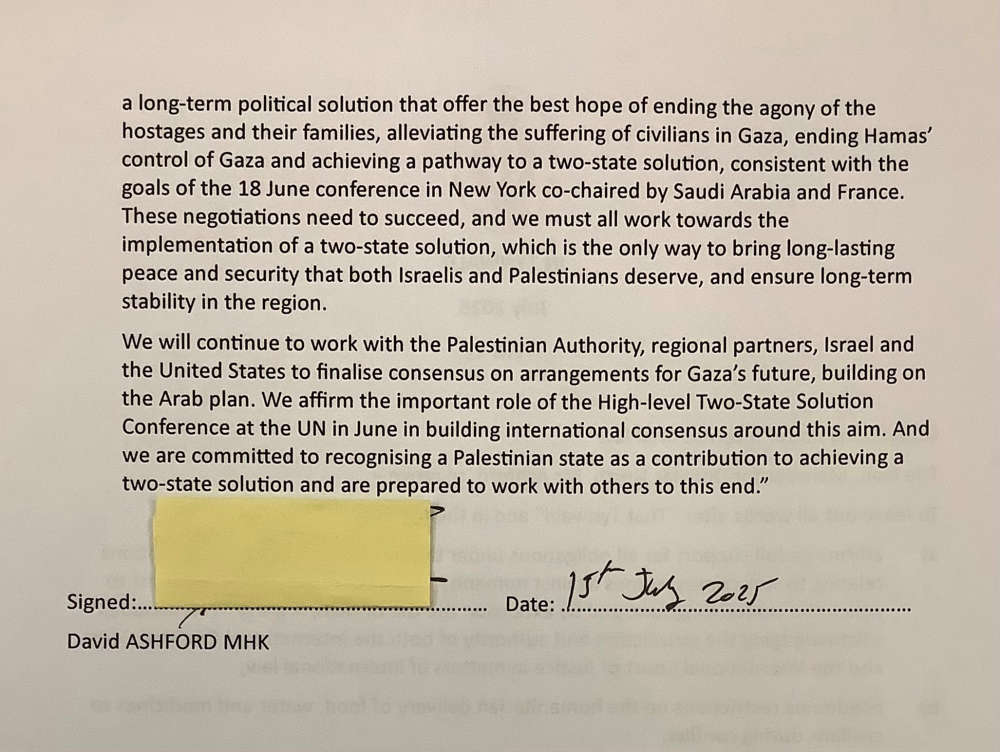
Amended Tynwald motion gains backing from the court
Tynwald has today (17 July) approved an amended motion affirming its full support for all international obligations relating to war crimes.
It follows a motion initially brought forward by Douglas East MHK Joney Faragher, and supported by Douglas North MHK John Wannenburgh and MLC Gary Clueit, which called on the chief minister to write to the UK Government conveying Tynwald's position.
It originally specified that such support should not be given to any state currently engaging in, or under formal international investigation for, violations such as war crimes or crimes against humanity.
The motion would have been entirely symbolic and would not have held any legal bearing.
However, Ms Faragher argued it would have represented a formal expression of Tynwald's stance on upholding international legal norms and human rights.
But Cabinet Office Minister David Ashford put forward an amendment, which was supported by the court:


The motion as amended was supported unanimously by Tynwald.
In essence, it supports the joint statement issued on 19 May 2025 by the leaders of the UK, France and Canada which opposes 'any attempt to expand settlements in the West Bank' and strongly supports 'the efforts led by the United States, Qatar and Egypt to secure an immediate ceasefire in Gaza'.
On 21 November 2024, the International Criminal Court issued arrest warrants for Israeli Prime Minister Benjamin Netanyahu and his former Defence Minister, Yoav Gallant, as well as for a Hamas leader, Ibrahim al-Masri, in connection with alleged war crimes and crimes against humanity committed during the Gaza conflict.
A legal briefing accompanying the motion highlights the UK’s obligations under international law, including the Geneva Conventions, the Rome Statute, and the Arms Trade Treaty.
It argues that states must not assist others in committing internationally wrongful acts, and that doing so could expose them to legal responsibility.
The briefing also references past UK court cases concerning arms sales to countries involved in conflict, underscoring the potential legal risks of continued cooperation.


 Drug and alcohol charity sees drop off in donations
Drug and alcohol charity sees drop off in donations
 Douglas Council rules out rent-to-buy scheme
Douglas Council rules out rent-to-buy scheme
 Public Health warns D&V is circulating on the Island
Public Health warns D&V is circulating on the Island
 Improvements being made as part of ongoing RDCH work
Improvements being made as part of ongoing RDCH work